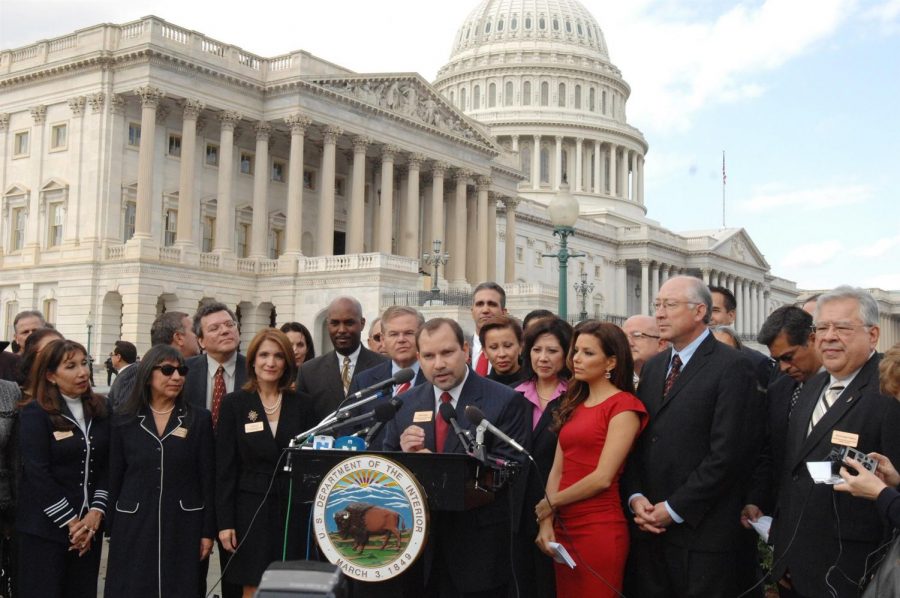Senator Mike Lee of Utah Blocks Legislation to Establish National Latino and Women’s Museum
Latino lawmakers and celebrities gather in front of the Capitol to kick off the commission on creating the National Latino Museum in Sept. 2009. (Image courtesy of Dan Vargas)
December 11, 2020
This past Thursday, Republican Senator Mike Lee of Utah blocked proposals for legislation to establish a National Museum of the American Latino and the American Women’s History Museum from unanimously passing the Senate, arguing that the United States does not need to establish further divisions within an already divided nation. The proposed bill would begin the process for building the museums, permitting the Smithsonian to do feasibility studies and consider locations. The museums would be funded between public and private money, however the decisions on locations and spending would be subjected to further review by Congress. Lee explained that “American history is an inclusive story that should unite [us]”, and reasoned how there is no need to create “separate-but-equal museums for hyphenated identity groups”.
Although there are museums dedicated to African Americans — the National Museum of African American History and Culture — and Native Americans — the National Museum of the American Indian, he claimed those groups were “uniquely, deliberately, and systemically excluded” from history. Instead, Lee affirmed that the history of Latinos and women should be illustrated in the existing American History Museum. Strong opposition towards Lee’s decision was drawn from Senator Bob Menendez, a New Jersey Democrat and advocate for a Latino museum, who described how disheartening it is that one individual “stands in the way of the dreams and aspirations of seeing Americans of Latino descent having their dreams fully recognized.” Menendez was especially opposed to Lee’s statement of prioritizing systematically excluded groups in their individual museums, as he argued how the latino community has also been discriminated against and excluded time and time again. In accordance, Senator Susan Collins of Maine, who pushed for a women’s history museum, believed this to be a sad moment, yet maintained an ambitious attitude. “I regret that that will not occur this evening, but we will not give up the fight,” Collins said.
In fact, the National Museum of the American Latino bill is a series of efforts tracing back to over 20 years. Fortunately, both bills overwhelmingly passed the House earlier this year. Legislation for the foundation of the Latino history museum passed in July with 295 co-sponsors, whereas legislation for the women’s history museum was passed in February with 293 co-sponsors. The vote would have been on the bill that the House approved in July with one amendment. If it had ideally passed the Senate, then it would have returned to the House for its final sign off, and then finally, to the president for his signature. Furthermore, Lee argued another issue in regards to how the museums were federally funded. Because a portion of the funding “is taken from the American people in the form of tax revenue,” the Smithsonian museums have a grand responsibility in our culture and as a teller of America’s national story, Lee declared. Although Lee held his decision on the principles of national unity and cultural inclusion, supporters of the bipartisan bills to add the museums to the Smithsonian Institution believe the only righteous way to bring about unified remembrance is to pass those bills.










